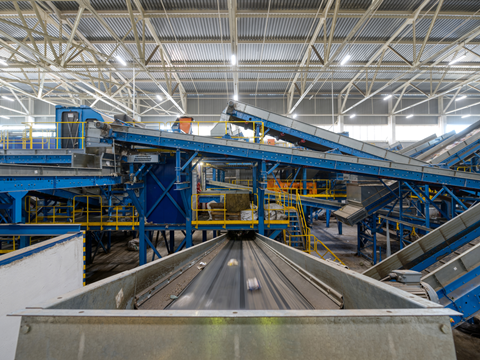
As Europe’s share of global plastics production is feared to have halved over 20 years, Plastics Recyclers Europe (PRE) is among the stakeholders calling for the European Union to regulate its virgin and recycled plastic imports and address high energy costs.
Reportedly, the rise in imports of plastics recycled outside the EU, lower investments in the domestic production and recycling of raw materials, and a lack of demand for virgin and recycled plastics within the continent continue to drive a ‘strong recession’ in Europe’s plastics value chain.
PRE claims that Europe’s share of global plastics production has halved from 28% in 2002 to 14% in 2022 – and that its growth of recycling capacity has declined from 16% in 2021 to 6% in 2023.
In the organization’s view, the EU must regulate its virgin plastic and recyclate imports, ensuring that all products placed on the EU market adhere to its health and safety requirements. This is set to support the competitiveness of the European plastic value chain and level the playing field for actors both within and outside the EU.
PRE goes on to assert that EU regulations should be enforced on every product and material circulated on the EU market; and that high energy costs throughout the continent must be tackled.
“We must urgently address the existing market uncertainties to prevent further de-industrialization and establish a Single Market for waste and recycled plastics,” it argues. “To achieve this, best practices should be implemented across all Member States, from production and processing to collection, sorting and recycling and these should be accompanied by clear enforcement measures to ensure the progress towards legislative targets.
“Additionally, establishing an EU-level incentive scheme to boost further investment, as well as clear legislative measures to encourage circular solutions, will provide the plastic value chain with the financial stability to drive further innovations for the industry and continue contributing to climate change mitigation.”
Plastics Europe, FEDEREC, Styrenics Circular Solutions, and the Polish Recycling Association are among the other stakeholders calling for ‘immediate efforts to strengthen the European plastics industry and promote a resilient, innovative, sustainable European plastics value chain.’
They call upon policymakers to strengthen Europe’s circular economy in the 2024-2029 legislature. Failure to do so is feared to compromise the continent’s leadership in plastic production and recycling, as well as the implementation of its 2030 environmental legal framework.
Earlier this year, PRE recorded a 7% decline in growth rate for installed plastics recycling capacity year-on-year. It attributed this decrease to heavy disruptions in the European market since 2020, and cautioned that the outcome could lead Europe to miss its legislative targets.
Since then, PRE has calculated a 6% year-on-year increase in recycling capacity in 2023; this marks the continent’s lowest growth since 2017. President Ton Emans also highlighted that the €1 billion invested into the recycling sector in 2022 had halved to €500 million in 2023.
In response to a warning that this recession was driving, and would continue to drive, recycling companies out of the European market, we spoke to regulatory affairs manager Mathilde Taveau to find out how the value chain and regulators could work to prevent this outcome.
If you liked this story, you might also enjoy:
The ultimate guide to the Packaging and Packaging Waste Regulation in 2024
How are the top brands progressing on packaging sustainability?
Sustainable Innovation Report 2024: Current trends and future priorities
Everything you need to know about global plastic sustainability regulation














No comments yet